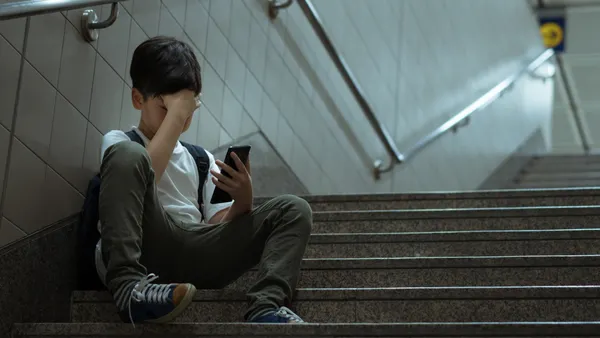Dive Brief:
- A decision by Harvard University saw acceptance revoked for a minimum of 10 students after they were found to have participated in posting explicit content online, but policies that make social media review part of the admissions process aren't likely to become widespread, eCampusNews reports.
- Social media reviews are, however, used to investigate reports of illegal behavior or misconduct at some institutions, according to University of Wisconsin-Eau Claire Director of Admissions Heather Kretz.
- Free speech activists have contended that the students who had their admission revoked by Harvard are protected by the First Amendment, though an official Facebook page for the Class of 2021 reportedly says "certain circumstances" can lead to admission being revoked.
Dive Insight:
Ultimately, decisions around tracking the social media activity of prospective students will fall to individual institutions, though most are probably likely to err on the side of such an action being too far-reaching.
Rather than adopting such a policy, it may be wiser for higher ed to encourage more digital citizenship lessons in K-12 curricula as a means of preventing it in the future, as well as offering their own lessons during orientation. Students who haven't received adequate learning opportunities on that front may not be aware of how things they've posted online are perpetually cataloged forever and can impact future career opportunities and more.
In addition to the understanding that they must serve as their own filters, digital citizenship can impart in students the importance of interacting with people online much as they would face-to-face, as well as the ability to discern reliable content from that which is satire or just maliciously false. The digital world isn't going away, and teaching students how to behave ethically rather than hindering their progress all together may be the best approach to creating productive citizens.












